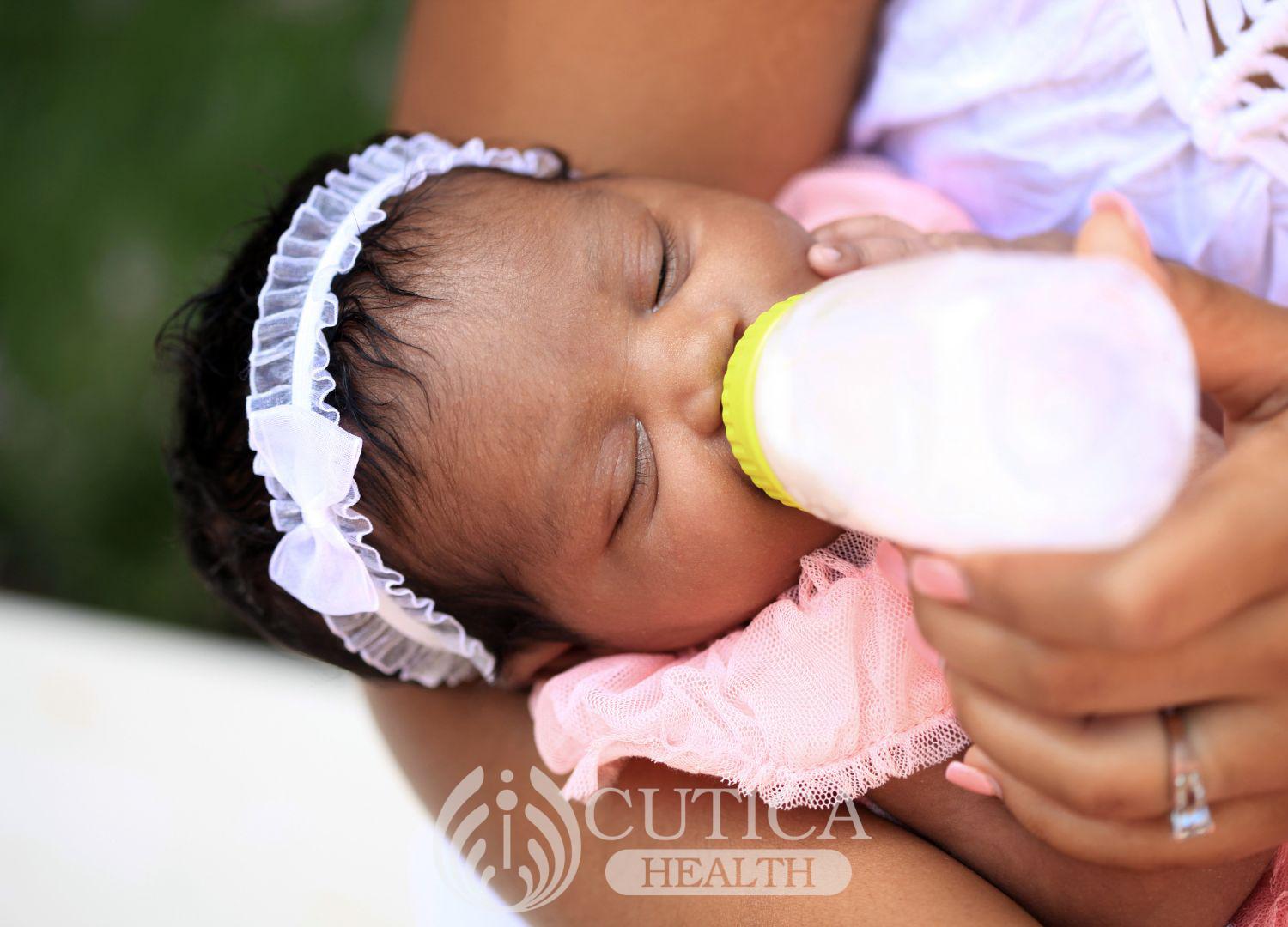
Many expectant parents struggle with having to decide between breast milk and formula. For some women, the desire not to breastfeed may stem from the need to maintain a certain lifestyle or comfort. For many women however, it is not as simple, as this decision may be due to a health condition which makes breastfeeding difficult.
Breastmilk is the recommended feed and is often praised as the healthiest option for both mother and baby.
Exclusive breastfeeding is when a baby is given only breast milk for the first six months of life without additional liquids. This means for this duration, the baby will not be given water, juices, prepared food, etc.

Exclusively breastfeeding a child for at least 6 months has been shown to have a host of benefits which includes:
Bonding: The process of breastfeeding creates and strengthens intimacy between a mother and her baby. This helps in fostering a good relationship and enhancing an emotional connection between the mother and child.
Easy Digestion: The nutrients in breast milk which includes sugars, protein and fat are better digested by the newborn compared to those found in formulas.
Infants who are on breastmilk have fewer episodes of bowel problems like diarrhoea and constipation.
Brain development: Breastfeeding supports healthy brain development.
Protection against diseases: A mother's breastmilk contains antibodies. These protect your child from serious illnesses, lowering their risk of getting infected. Breastmilk has also been shown to lower the risk of conditions like allergies, asthma, diabetes, obesity, and sudden infant death syndrome (SIDS).

FORMULA FEEDING
This is a healthy alternative to breast milk, usually made from fortified cow's milk. Some benefits of formula feeding are:
Flexibility and convenience: Your baby can be fed by anyone and you can easily go about your work.
Fewer feed times: Compared to breast milk, formula is digested at a much slower rate which means your baby doesn’t get hungry as quickly.
No diet limitation: If you are not breast feeding, you can eat whatever you want as there is no need to stay off meals that are not tolerated by babies since food and drugs ingested by the mother get into breastmilk.

MORE
Breast milk is often praised as the best choice for newborns. To the mother, breastfeeding has been shown to reduce the risk of both breast and ovarian cancers, decrease post partum depression, and prolong the onset of menstruation.
Sometimes, a mother may be advised to do supplemental feeding. This is when both breastmilk and formula are given to the child at the same time. This is usually advised in cases where a baby was born prematurely or with a very low birth weight requiring extra calories. It may also be advised in a situation where a mother isn’t producing enough milk and the baby is always hungry or when a baby is finding it difficult to latch onto the breast.

Some mothers may begin with formula or supplemental feeding immediately after birth and later switch to exclusive breastfeeding when they become more comfortable.
Whichever method you are considering, it is important that you do what is best for your baby, considering your particular circumstance. Do not let guilt or other people push you into making a less than ideal choice. Speak to your doctor to know which option is best for you.












